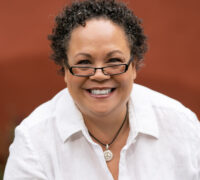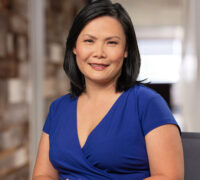To lead others, we must have a healthy relationship with ourselves
Sanyin Siang, Executive Director of Duke University’s Coach K Center on Leadership & Ethics (COLE) and a CEO coach and advisor to Google Ventures, believes that to lead others, we must have a healthy relationship with ourselves. She volunteers three insights that she found helpful at an extremely distressing moment in her life. “None of us are immune to anxiousness and sadness,” she reveals. “Last spring, I was feeling down and having some not-so-great thoughts. I talked to my husband, who’s a physician, about it, and he said, ‘Sanyin, much of this is neurochemistry, so let’s get you some help.’”
“I started seeing a therapist, who helped me unpack a lot of things, and we landed on one key thing, which is the feeling that I didn’t feel I was worthy. I was struggling with this idea of mattering, and I was so focused on my deficiencies that I was overlooking whatever proficiencies I had.” This led to the insight that we need a much broader definition of value or worth: “I thought, ‘Oh, that ties with my superpower.’ I realized that what makes us extraordinary to everyone else – our superpower – is also one of our biggest blind spots because we don’t value what comes easily to us. That extraordinariness may be not only in things that are achievement-related but also the ability to bring joy capital and the ability to be curious.” This epiphany led Siang to formulate five tips for cultivating feelings of self-worth and, through improved self-esteem, be better able to lead others:
Step 1: Recognize that we all have value
“We all have worth because we’re all human beings,” Siang says. “We need others to help see ourselves clearly, then we can help others see the extraordinariness in themselves. Instead of asking, ‘What do I bring to the table?’, flip it and say, ‘I have something to contribute. Let’s discover what that is and, knowing that others have something to contribute because they’re human, let’s discover what that is.’”
Step 2: Invite others in
Siang’s next tip is to invite others in. “It’s necessary to be with others to make the biggest difference, and joy is infectious. We all have blind spots on what makes us able to be better, so invite others in – which conversely means we can be that person who helps others see how they’re extraordinary. The best way to minimize imposter syndrome for yourself is to minimize it for others, so shout out their contributions.”
Step 3: Strive to mend, not perfect
Another of her maxims is to strive for mending instead of striving for perfection: “Rather than trying to protect ourselves from breakage, which is inevitable because life is messy and we’re human, focus your energies on becoming a mender.” Having a better relationship with oneself, she says, can help make us even more compassionate when dealing with our teammates: “When we help ourselves flourish, we help our teammates flourish. And if we want to become our best selves, the best thing we can do is surround ourselves with people who want to see us flourish.”
Step 4: Believe you are enough
Siang also strongly recommends letting go of the need to be perfect: “A lot of the time, we need validation to prove to ourselves that we are enough, but it’s never going to come because it’s never enough. Instead, you must believe you’re enough. You must believe that your team is enough, and they must believe it, too.”
Step 5: Accept that you’re not responsible for everything
Her final tip is to understand that we’re not uniquely responsible for others because decisions are not always within our control. “This is as true for our kids as it is for our work colleagues,” she says. “We can help guide them and foster the environment and be there for them, but every person owns the decisions in their lives.”










 Audio available
Audio available